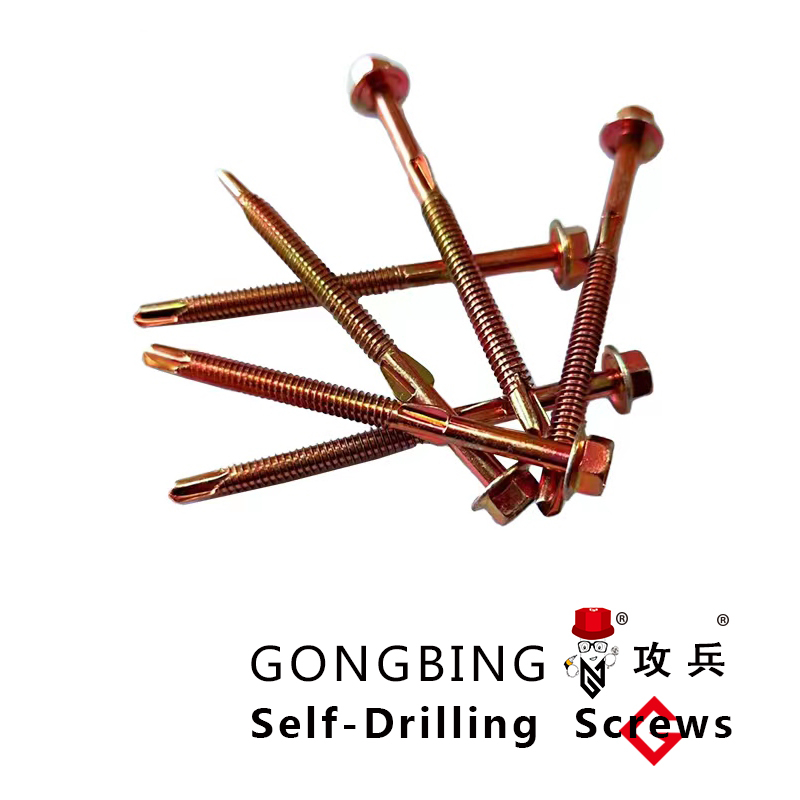Using fine thread drywall screws for optimal wood construction efficiency and durability
Fine Thread Drywall Screws in Wood A Comprehensive Guide
When it comes to woodworking and construction, the choice of fastener is a crucial decision that can significantly impact the strength and durability of a structure. Among the various options available, fine thread drywall screws have gained popularity for their versatility, especially when it comes to fastening drywall to wooden studs. This article delves into the intricacies of using fine thread drywall screws in wood, discussing their benefits, applications, and some best practices to ensure reliable fastening.
Understanding Fine Thread Drywall Screws
Fine thread drywall screws are specifically designed for attaching drywall sheets to various substrates, including wood and metal. Unlike coarse thread screws, which have larger, deeper threads, fine thread screws feature thinner, more closely spaced threads. This design facilitates a smoother insertion and reduces the risk of damaging the material, particularly when dealing with softer woods.
One of the distinctive aspects of fine thread drywall screws is their ability to provide a tighter connection, which contributes to a firmer hold. This is particularly beneficial in applications where vibration or movement might occur, as it helps prevent loosening over time.
Advantages of Fine Thread Drywall Screws in Wood
1. Enhanced Grip The fine threads create more contact points between the screw and the wood, leading to better grip and holding power. This is especially advantageous when securing drywall to wooden studs, as it reduces the likelihood of popping screws due to temperature changes or settling.
2. Reduced Splitting When working with softer woods, using coarse thread screws can lead to splitting, especially near edges. Fine thread screws are less likely to cause this issue since the smaller threads exert less pressure on the wood fibers during insertion.
3. Ease of Use Fine thread drywall screws are easier to drive into wood compared to their coarse-thread counterparts. They require less torque, allowing for faster and more efficient installation. This can be particularly useful in large projects where time is of the essence.
4. Versatility Although primarily used for drywall, fine thread screws can also be employed in a variety of other woodworking projects, including cabinetry, furniture building, and framing. This versatility makes them a favorable choice for both professionals and hobbyists.
fine thread drywall screws in wood

5. Aesthetics Fine thread screws often have a more discreet appearance when driven into wood, minimizing any visible fasteners and allowing for a cleaner finish on the project.
Best Practices for Using Fine Thread Drywall Screws in Wood
To maximize the benefits of fine thread drywall screws, it's essential to follow some best practices during installation
1. Choose the Right Length and Gauge Selecting the appropriate screw length and gauge is critical. Generally, 1 1/4 to 1 5/8 inch screws are ideal for standard drywall applications. Ensure that the screw length penetrates the wood sufficiently without risking breakage.
2. Pre-Drilling When working with harder woods or when the risk of splitting is present, pre-drilling can help prevent damage. A pilot hole reduces the torque needed and makes driving the screw smoother.
3. Use a Screw Gun Employing a screw gun with adjustable clutches can help prevent over-driving the screw, which can strip the material or damage the drywall. A screw that is driven too deep can result in a weak connection and affect the overall integrity of the installation.
4. Don’t Over-tighten While it may be tempting to drive the screw in as hard as possible, this can backfire. Over-tightening can warp the drywall and compromise its integrity, leading to cracks and potential failures down the line.
5. Consider Coating If the project involves exposure to moisture, consider using coated screws that resist corrosion. This will enhance the longevity of the screws and the overall project integrity.
Conclusion
Fine thread drywall screws are a valuable tool in the woodworker's arsenal, offering numerous advantages over standard fasteners. With their superior grip, reduced risk of splitting, and ease of use, they have become a go-to choice for attaching drywall and other materials to wood. By understanding their benefits and following best practices during installation, you can ensure a strong and durable finish for your woodworking projects. Whether you’re a seasoned professional or an enthusiastic DIYer, fine thread drywall screws can elevate the quality of your work, providing security and longevity that stand the test of time.
-
Weatherproof Plastic Expansion Anchors for OutdoorNewsJun.06,2025
-
Sustainability in the Supply Chain: Eco-Friendly TEK Screws ProductionNewsJun.06,2025
-
Load-Bearing Capacity of External Insulation FixingsNewsJun.06,2025
-
Double Head Bolts: Enhancing Efficiency in Industrial MachineryNewsJun.06,2025
-
Corrosion Resistance in Chipboard Screws: Coatings for Wholesale DurabilityNewsJun.06,2025
-
Butterfly Toggle Bolts : Enhancing Structural ResilienceNewsJun.06,2025
